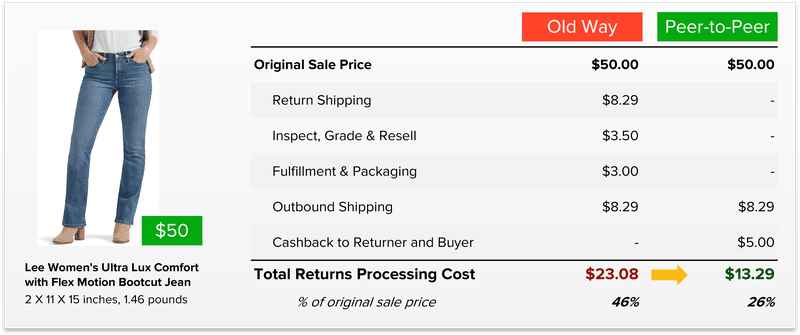Navigating the Global Marketplace: A Guide to International Ecommerce Shipping

Last updated on February 13, 2025

In this article
 10 minutes
10 minutes
- International Ecommerce Shipping: How Does it Work?
- What Documents Do I Need to Ship Internationally?
- Complying with International Shipping Regulations
- Do I Need Insurance for International Shipping?
- International Shipping Costs: Duties and Tariffs
- What Are Incoterms and Why Are They Important?
- Dos and Don’ts of International Shipping for Ecommerce Sellers
- Conclusion: A Gateway to Growth for Ambitious Ecommerce Merchants
- Frequently Asked Questions
International shipping forms the backbone of global commerce, enabling the movement of goods across borders and connecting businesses with customers everywhere. As globalization continues to shrink distances, mastering the intricacies of international shipping becomes an increasingly indispensable skill for ecommerce sellers. This guide delves into the importance of international shipping, requirements for moving goods internationally, and Incoterms, and also explores key dos-and-don’ts for sellers seeking to take advantage of the worldwide market.
International Ecommerce Shipping: How Does it Work?
International shipping is a complex system, with carriers, logistics providers, customs agencies, and regulatory bodies collaborating to move goods across national boundaries. This network facilitates the global marketplace, giving businesses the ability to sell their products to customers across the globe.
There are several stages to shipping internationally: choosing transportation methods, exporting goods from the origin country, navigating customs clearance, and delivering products to the final destination. Each stage demands meticulous planning, regulatory compliance, and strategic decision-making. For ecommerce sellers, understanding each component is crucial to ensuring smooth operations and positive customer experiences.
International shipping offers ecommerce merchants the opportunity to expand their customer base beyond domestic borders, increasing sales and brand reach. Access to global markets allows businesses to tap into higher demand and seasonal advantages in different regions. Additionally, merchants can benefit from competitive shipping rates through bulk partnerships with carriers and fulfillment services, streamlining logistics. Offering international shipping can also enhance brand reputation, making a company appear more established and trustworthy to customers worldwide. If managed effectively with reliable carriers, tracking systems, and transparent customs processes, international sales can be a significant driver of revenue growth.
What Documents Do I Need to Ship Internationally?
Accurate and complete documentation is vital for seamless international shipping. When a package is shipped across borders, it must be accompanied by the necessary documentation to be approved and successfully delivered. Customs authorities in the destination country review these documents to assess duties, taxes, and potential import restrictions. Necessary documents include:
- The Commercial Invoice provides transaction details, including product descriptions and prices.
- The Packing List itemizes shipment contents and provides clarity for customs officials regarding what is being shipped.
- A Bill of Lading or Airway Bill serves as a contract for cargo transportation, ensuring that expectations are set and met between the shipper and recipient.
- A Certificate of Origin verifies the manufacturing or originating country for the goods being moved, and is often required for determining applicable tariff rates.
Customs declarations are particularly important. Any errors or omissions can lead to delays, additional costs, or even to the shipment being rejected altogether. Sellers must prioritize precision and stay up to date on documentation requirements for target markets.
Complying with International Shipping Regulations
Every country enforces its own import regulations, creating a challenging landscape for businesses to navigate. Compliance involves obtaining necessary licenses, adhering to local restrictions, and keeping pace with changing trade policies. For example, sellers exporting to India must secure an Importer Exporter Code (IEC) and comply with GST regulations, among other requirements.
Partnering with experienced logistics providers can alleviate these challenges. Their expertise ensures adherence to regulations, straightforward customs clearance, and reliable delivery, which enables businesses to focus on their core operations.
Do I Need Insurance for International Shipping?
Cross-border shipping comes with inherent risks that can impact costs and customer satisfaction. Customs regulations vary by country, leading to possible delays, unexpected duties, and compliance challenges. Parcels are more susceptible to loss, theft, or damage due to multiple handling points and longer transit times, sometimes requiring additional insurance. High return costs, currency fluctuations, and fraud risks, such as chargebacks from disputed deliveries, can further erode profit margins. Inconsistent shipping timelines and limited tracking visibility in some regions can also frustrate customers, affecting brand trust. To mitigate these risks, merchants must carefully evaluate shipping partners, clearly communicate potential fees to customers, and ensure proper packaging and documentation to minimize disruptions.
Using insurance for international parcel shipping is generally a good idea, especially for high-value, fragile, or time-sensitive items. International shipments are exposed to various risks, including loss, damage, theft, or customs-related delays. While major carriers like FedEx, UPS, DHL, and USPS offer some limited liability coverage, it may not fully cover the value of your goods.
If you’re shipping expensive products or operating an ecommerce business, purchasing additional shipping insurance ensures financial protection in case of issues during transit. Many third-party insurance providers offer better rates and broader coverage than carrier-provided options. However, for low-value items, self-insuring (absorbing occasional losses) might be more cost-effective. Ultimately, the decision depends on the value of your shipments, your risk tolerance, and the reliability of your chosen shipping carrier.
International Shipping Costs: Duties and Tariffs
Duties and tariffs play a pivotal role in international shipping, and can significantly affect the overall cost of goods. Duties are taxes imposed by governments on imported goods, calculated based on the product’s value, classification, and country of origin. Tariffs, on the other hand, are broader trade policies aimed at regulating imports and exports, often designed to protect domestic industries.
Understanding the duty rates and tariff classifications for target markets is crucial for ecommerce sellers. Misclassification or underestimation of duties can lead to unexpected costs, delays, or legal issues. Tools like the Harmonized System (HS) Code help standardize product classifications globally, simplifying the process of determining applicable duties.
For sellers, factoring in duties and tariffs during pricing and shipping calculations ensures transparency and prevents unexpected expenses for customers. Additionally, options like Delivered Duty Paid (DDP) shipping allow sellers to cover these costs upfront, creating a smoother experience for buyers.
What Are Incoterms and Why Are They Important?
Incoterms (short for International Commercial Terms) are standardized trade terms published by the International Chamber of Commerce (ICC). They define the responsibilities, costs, and risks shared between buyers and sellers during shipping transactions, and clarify a number of key details about international transactions before goods are moved across borders.
Key Categories of Incoterms
For Any Mode of Transport:
- EXW (Ex Works): The seller provides goods at their premises, leaving all transportation responsibilities to the buyer.
- FCA (Free Carrier): The seller delivers goods to a carrier designated by the buyer, handling initial transport and export clearance.
- CPT (Carriage Paid To Place): The seller pays for transportation to a specified destination, with risks transferring at the first carrier.
- CIP (Carriage and Insurance Paid To Place): Similar to CPT but includes minimal insurance coverage.
- DAP (Delivered at Place): The seller assumes all costs and risks until the goods arrive at the buyer’s location ready for unloading, with the buyer responsible for import duties, taxes, and customs clearance.
Note: DDU (Delivered Duty Unpaid) is an archaic designation that is still commonly used in transportation contracts, although the ICC officially uses DAP to describe the contract situation previously designated DDU.
- DPU (Delivered at Place Unloaded): An extension of DAP, including unloading at the destination.
- DDP (Delivered Duty Paid): The seller covers all transportation, customs clearance, and import duties, delivering the goods ready for the buyer to use.
For Sea and Inland Waterway Transport:
- FAS (Free Alongside Ship): The seller places goods alongside the vessel, transferring responsibilities to the buyer.
- FOB (Free on Board): Risk and responsibility transfer once goods are loaded onto the vessel.
- CFR (Cost and Freight): The seller pays for transport to the destination port, with risk transferring at loading.
- CIF (Cost, Insurance, and Freight): Like CFR but includes minimal insurance coverage.
DDP Shipping
Delivered Duty Paid (DDP) is among the most seller-intensive Incoterms, requiring the seller to handle every aspect of shipping. This includes:
- Export and import duties
- Customs clearance
- Transportation to the buyer’s specified location
For buyers, DDP provides a seamless experience, as they receive goods without worrying about additional costs or logistical hurdles. However, for sellers, DDP requires meticulous planning and an understanding of destination country regulations. Despite these complexities, DDP can enhance customer satisfaction and boost sales by offering a hassle-free shipping experience.
Dos and Don’ts of International Shipping for Ecommerce Sellers
Do:
- Understand Your Target Market: Research local regulations, customer preferences, and demand trends to tailor your shipping approach. Local languages, common payment methods, and cultural factors should also be considered.
- Start Small: While it may be tempting to offer international shipping on as many products as possible right away, it is best to begin by offering the service for a limited number of products. This provides an opportunity to get comfortable with the processes and requirements of international shipping.
- Invest in Quality Packaging: Secure packaging prevents damage during transit and builds customer trust. The additional time and risk associated with international shipping multiplies the importance of packaging.
- Leverage Technology: Use advanced tracking systems and data analytics to optimize logistics and enhance customer satisfaction.
- Communicate Transparently: Provide clear shipping policies to customers, including delivery timelines and potential costs, to align expectations.
Don’t:
- Overlook Documentation: Missing or inaccurate paperwork results in frustrating delays and tension with buyers, and could even result in legal action against your company.
- Ignore Regulations: Non-compliance with customs requirements leads to costly fines or costlier shipment rejections.
- Compromise on Shipping Partners: Reliable logistics providers are necessary for ensuring timely deliveries. Special care is needed when choosing shipping partners in a separate country, where regulations and available partners may be unfamiliar.
- Neglect Return Policies: Clear and customer-friendly return processes are essential, even for international orders.
Conclusion: A Gateway to Growth for Ambitious Ecommerce Merchants
International shipping represents both a significant challenge and an opening for ecommerce sellers to expand their business’ potential market by orders of magnitude. By understanding transportation methods, mastering documentation, navigating regulatory landscapes, and leveraging the power of Incoterms, sellers can transform shipping challenges into opportunities.
Selecting the right shipping and fulfillment strategy is critical to successfully grow your business internationally. Partnering with a reliable shipping carrier that offers competitive rates, tracking, and delivery guarantees is essential. It’s also important to research customs duties, taxes, and import regulations in each target country to avoid unexpected delays or costs. Clearly communicating shipping policies, estimated delivery times, and potential import fees to customers helps manage expectations and reduce disputes.
As technology continues to revolutionize logistics, ecommerce sellers must remain agile, embracing innovations and new strategies to adapt to a rapidly changing landscape. In spite of its complexity, with careful preparation and strategic partnerships international shipping can be made into a powerful tool for global growth.
Frequently Asked Questions
What low-cost options are there for international shipping?
While most carriers offer international shipping options, pricing can vary significantly based on the carrier and location. In general, USPS offers the cheapest options to ship internationally, though it comes with longer delivery times than other carriers.
How do I know if I can ship to a specific country?
Customs regulations vary widely from country to country, so to get detailed information about shipping to a particular country, it is best to check first on the website of that country’s relevant customs authority. Many shipping carriers also provide consultations about shipping to your specific areas of interest.
Do I need a customs broker?
A customs broker offers a service that handles all customs paperwork and duties on your behalf, for a fee. Due to the intricacy of customs handling, particularly when shipping to multiple countries, sellers should strongly consider engaging with a customs broker to simplify the process and save time. Sellers should also check with their shipping carrier, as carriers often offer brokerage services.

Up to 64% Lower Returns Processing Cost


